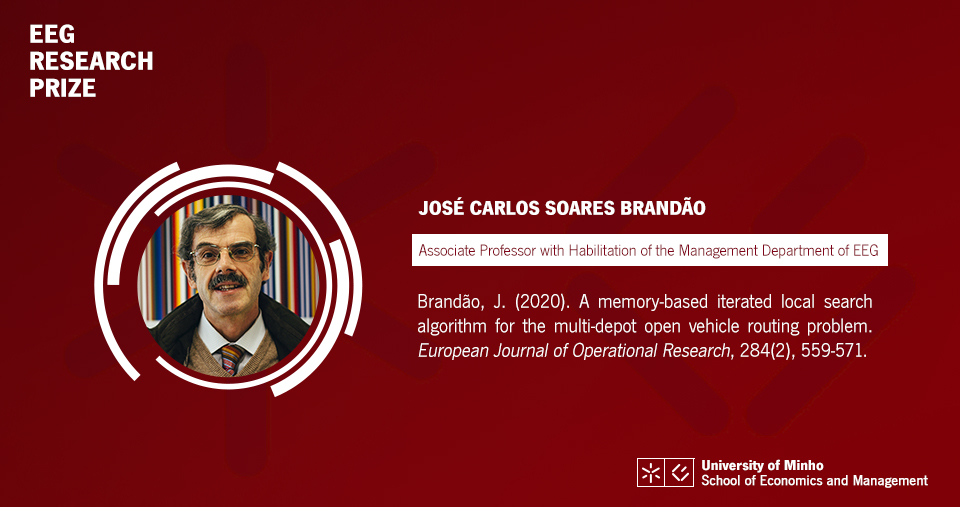José Soares Brandão won the EEG Research Award 2021
José Carlos Soares Brandão, a faculty member of the School of Economics and Management (EEG), created a model that reduces costs and increases efficiency in the logistics of companies. Its algorithm has been tested in a wide range of problems in the scientific literature. It reduces by about 1% of the total distance covered by distribution vehicles as compared to the best existing solutions.
With this research work, published in the European Journal of Operational Research, José Soares Brandão was delivered the EEG Research Award. The award distinguished the author who had the scientific article of 2020 most voted by the presidents of the scientific councils of the main Faculties of Economics, Management and Political Science in Portugal.
In his article “A memory-based iterated local search algorithm for the multi-depot open vehicle routing problem”, José Soares Brandão solved a problem that has been little studied. In particular, the definition of vehicle routes where there are multiple warehouses, from which the goods are sent to customers, aiming to make the required deliveries and minimise the costs of distribution. The most innovative feature of the proposed algorithm is the use of memory to guide the search for the best solutions.
José Carlos Soares Brandão was born and has been living in Braga for 63 years. He holds a PhD in Operational Research from the Lancaster University (UK) and has been teaching and researching at the UMinho since 1987. He was also the Master in Management Programme Director. He is an Associate Professor with Habilitation of the Department of Management and a Researcher Member of the Centre for Research in Economics and Management (NIPE).
The inception of the EEG Research Award was in 2009. It is delivered at each anniversary ceremony of our School. In addition to José Soares Brandão, the Research Award has already awarded to Luís Aguiar-Conraria, Odd Rune Straume, Gilberto Loureiro, Francisco Veiga, Linda Veiga, Cristina Amado, Miguel Portela, Rosa Branca Esteves, Nelson Areal, Ricardo Sousa and António Tavares.


